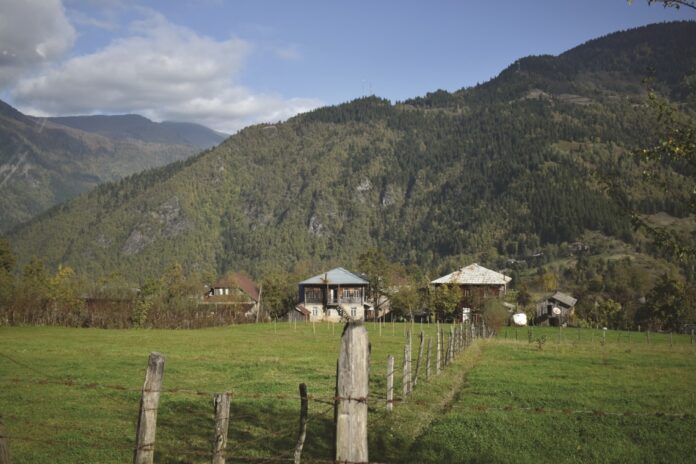At the end of 2019, the government of the Autonomous Republic of Ajara, a region of southwest Georgia in the Southern Caucasus, and a former Soviet Republic, began implementing a programme for sector reform and improvement of water supply and sanitation in rural areas.
The programme covers the five semi-urban municipal centres, as well as 38 of 200 rural villages. Most of these villages need an independent water supply and sanitation system, although several of them can be supplied through the centralised water supply systems serving the municipal centres. Altogether, 50,000 inhabitants will benefit directly.
The programme is the first of its kind in the country. Donors, and even the government, have in the past mainly focused on urban areas and, unfortunately, ignored the rural areas. Based on more than 15 years of upgrading the water and sanitation infrastructure in Ajara’s capital, Batumi, the successful approach used there will now be extended to the rural areas. The programme budget is €59.5m, of which €43m is provided by the German government through KfW development bank, with €7m from the EU and €9.5m from a local contribution of the Georgian government.
Urban utility lessons
The lessons from Batumi cover the upgrading of infrastructure, as well as the concept of a well-managed and properly functioning utility that takes care of high-quality service provision.
Before its programme, Batumi had a deteriorated water supply system providing an unreliable supply of less than one hour/day. Wastewater was released untreated into the Black Sea. Now, 15 years and four project phases later, the city has the most modern water supply system and wastewater treatment plants in the country. This is particularly impressive as, in parallel, the number of inhabitants in the city has doubled.
Not only is the infrastructure new this would have been the easiest part but the municipal utility, Batumi Tskali, is also operating properly and maintaining the infrastructure adequately, and has developed a customer-focused approach. The experiences from this urban role model provided the basis for the system upgrading and service orientation for the rural areas.
The rural programme
The rural programme is based on active participation of the, to now, unserved population, who currently maintain improvised and unreliable supply systems, and are without sanitation systems, leading to pollution and health risks. The concept for the project emphasises that, for rural communities, a simple replication of the urban success story is not good enough. A specific, tailored approach is required, which has been under development for more than one year and leads to the active participation of the rural village population at all stages of the programme development. This involves village meetings, workshops, and training. The COVID-19 pandemic made this difficult, and led to events and meetings being split to limit participant numbers at each.
The main goal is to introduce adequate, network-based water supply systems in the rural areas. Most of these are supplied by spring water. In a limited number of cases, surface water and, hence, simple treatment technology will be applied.
The current infrastructure is based on free-flowing water pipes, where water is permanently running to prevent it from freezing in winter and to maintain fresh quality in summer.
Development of the new system is following a WASH approach and will therefore ensure that water, sanitation and health aspects have an equal focus. MACS wSmart, an easy-to-use design and modelling system, is being used for the conceptual design of each of the village water supply systems. The newly established supply network will be laid in trenches deep enough to prevent the water from freezing. The design is expected to be finalised in early 2021, and tendering for construction works started recently. Implementation works are scheduled to start in the second half of 2021 and expected to last for approximately three years, as construction works are not possible during winter. In parallel, the village user groups will be established, assisted, and trained.
Operation and maintenance
More important than the new supply systems is the structure for adequate operation and maintenance. In rural areas, this will be largely based on active user group work, supported by a dedicated technical team linked to each municipal utility, assisting several villages in the same region.
The user groups established in all the villages will ensure adequate operation. They will also ensure proper payment of the financial contribution of the village inhabitants, to sustain the operation and maintenance. Past experience shows that, when no tariff system or cost sharing mechanism is in place for operation and maintenance, all the systems collapsed when a problem occurred.
The novel use of a village user group-based approach will empower and strengthen the local population to receive and operate a new, modern and reliable supply system, and share the costs for adequate operation and maintenance, rather than relying on uninterested utility structures that usually do not work outside urban areas.
With this foundation, the programme will contribute significantly to the improvement of the water supply and wastewater collection and treatment in the region, reducing risk to health and the environment. It will also provide a basis for economic development, particularly the development of eco-tourism in the beautiful Ajara mountain region. •
Note
Article provided by Matthias Hitzel, Managing Director, MACS GmbH.
See: macsonline.de








